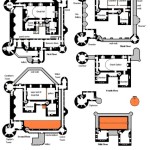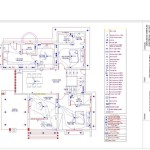A Comprehensive Guide to Essential Aspects of Kerala Style House Plans
Kerala-style houses have a unique charm and character, reflecting the rich cultural heritage of the region. When planning a Kerala-style house, it's crucial to consider several essential aspects to ensure a harmonious and comfortable living space.
1. Architectural Style
Kerala houses are typically designed with sloping roofs, adorned with traditional clay tiles or Mangalore tiles. The roofs often extend over verandahs or courtyards, providing shelter and shade. The walls are usually thick and made of laterite stone or red bricks, offering excellent insulation.
2. Layout and Design
Kerala houses commonly feature a central courtyard, known as the "nadumuttam." This central courtyard serves as a focal point for the house, providing natural light and ventilation. The rooms are typically arranged around the courtyard, with the kitchen and dining area often situated close to it for easy access.
3. Materials and Finishes
Traditional Kerala-style houses use natural materials such as laterite stone, red bricks, and wood. Wooden beams and pillars are often used to support the sloping roofs. The floors are typically laid with polished red oxide or granite tiles, while the walls are often adorned with murals or other traditional artwork.
4. Landscaping and Greenery
Landscaping plays a vital role in Kerala-style homes. Courtyards and verandahs are commonly adorned with lush tropical plants, creating a serene and welcoming ambiance. Coconut trees, banana plants, and other local vegetation can be used to enhance the natural beauty of the home.
5. Vaastu Principles
Vaastu Shastra, an ancient Indian science of architecture, is often considered when planning Kerala-style houses. The orientation of the house, placement of rooms, and other design elements are guided by Vaastu principles to ensure harmony and positive energy flow within the dwelling.
6. Modern Adaptations
While traditional Kerala-style houses retain their charm, modern adaptations have emerged to cater to contemporary lifestyles. These adaptations include incorporating modern amenities such as built-in kitchens, modular bathrooms, and energy-efficient lighting. However, the core architectural principles and traditional elements are often preserved.
7. Sustainability and Energy Efficiency
Sustainable design is gaining importance in modern Kerala-style houses. Using eco-friendly materials, incorporating solar panels, and adopting passive cooling techniques can help reduce energy consumption and minimize the environmental impact.
Conclusion
Planning a Kerala-style house requires careful consideration of the architectural style, layout, materials, and traditional elements. By incorporating these essential aspects, homeowners can create a beautiful and functional living space that reflects the rich cultural heritage of Kerala while embracing modern amenities and sustainable practices.

Kerala Traditional 3 Bedroom House Plan With Courtyard And Harmonious Ambience Home Planners

Kerala Style House Design East Facing Home Plan With Elevation And Designs Books

Kerala Style Home Plans Model

Kerala Style House Plans Low Cost Small In With Photo

Fascinating Kerala Style Single Storied House Plan And Its Elevation Story Model Plans With Pictures One

Traditional Kerala Style House In Great Looking Design

Kerala Traditional Home With Plan House Design Plans

Kerala Style Three Bedroom Low Budget House Plans Under 1300 Sq Ft I Total 4 Small Hub

Simple And Beautiful Kerala Style 3 Bedroom House In 1153 Square Feet With Plan Home Planners

Best Kerala House Designs Floor Design Plans And Ideas








